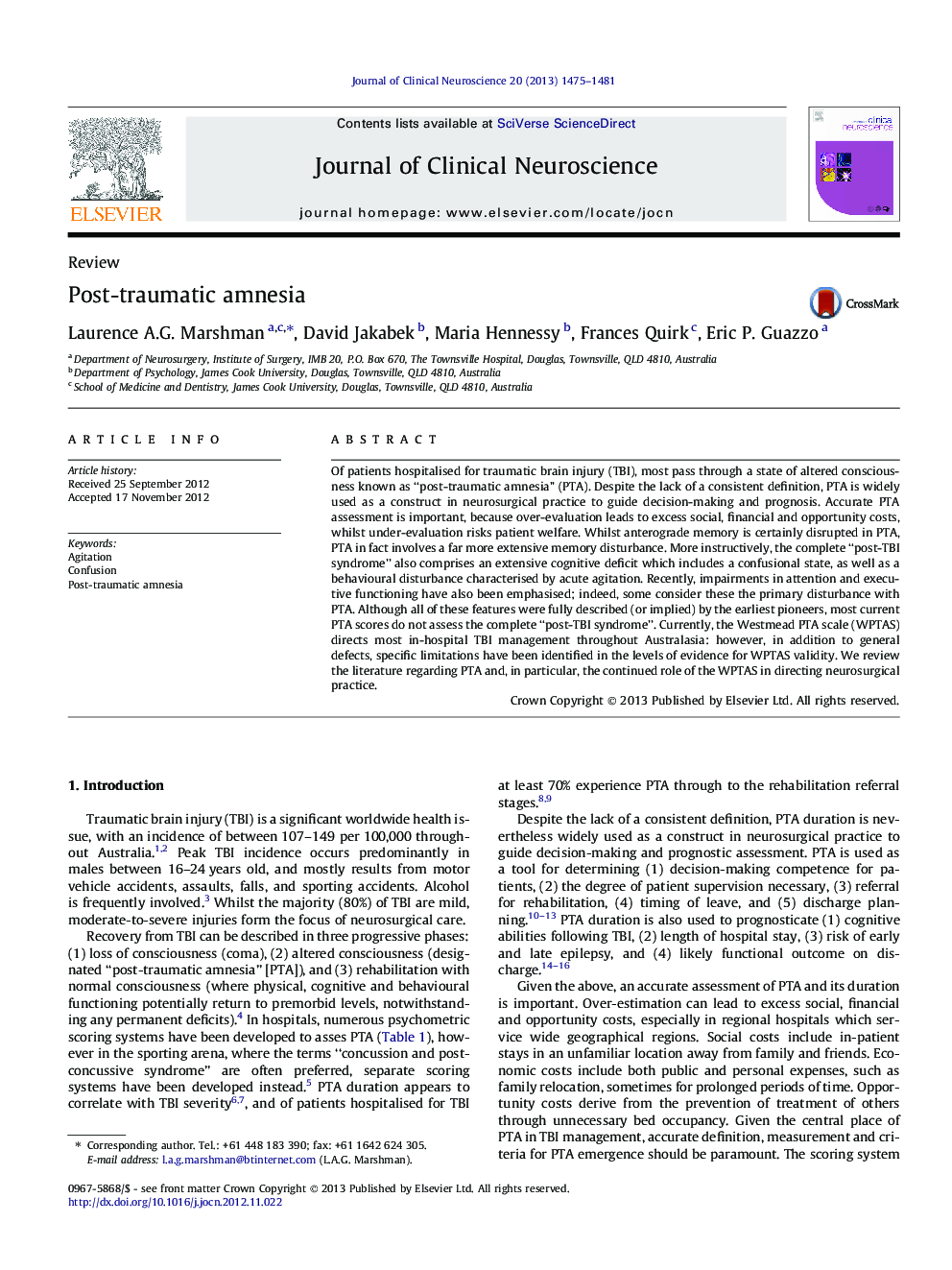| کد مقاله | کد نشریه | سال انتشار | مقاله انگلیسی | نسخه تمام متن |
|---|---|---|---|---|
| 3059706 | 1187433 | 2013 | 7 صفحه PDF | دانلود رایگان |

Of patients hospitalised for traumatic brain injury (TBI), most pass through a state of altered consciousness known as “post-traumatic amnesia” (PTA). Despite the lack of a consistent definition, PTA is widely used as a construct in neurosurgical practice to guide decision-making and prognosis. Accurate PTA assessment is important, because over-evaluation leads to excess social, financial and opportunity costs, whilst under-evaluation risks patient welfare. Whilst anterograde memory is certainly disrupted in PTA, PTA in fact involves a far more extensive memory disturbance. More instructively, the complete “post-TBI syndrome” also comprises an extensive cognitive deficit which includes a confusional state, as well as a behavioural disturbance characterised by acute agitation. Recently, impairments in attention and executive functioning have also been emphasised; indeed, some consider these the primary disturbance with PTA. Although all of these features were fully described (or implied) by the earliest pioneers, most current PTA scores do not assess the complete “post-TBI syndrome”. Currently, the Westmead PTA scale (WPTAS) directs most in-hospital TBI management throughout Australasia: however, in addition to general defects, specific limitations have been identified in the levels of evidence for WPTAS validity. We review the literature regarding PTA and, in particular, the continued role of the WPTAS in directing neurosurgical practice.
Journal: Journal of Clinical Neuroscience - Volume 20, Issue 11, November 2013, Pages 1475–1481